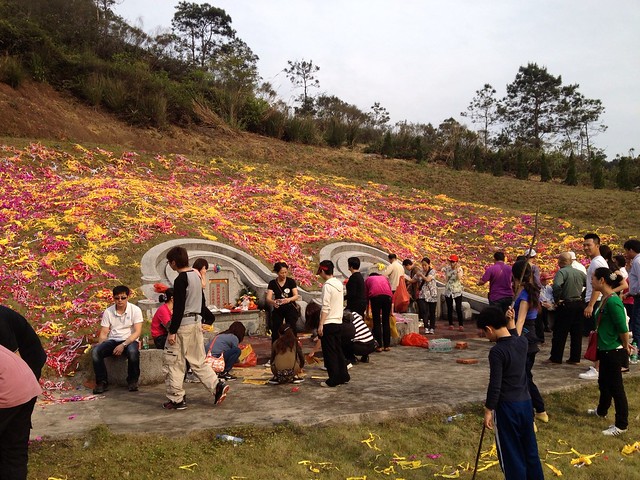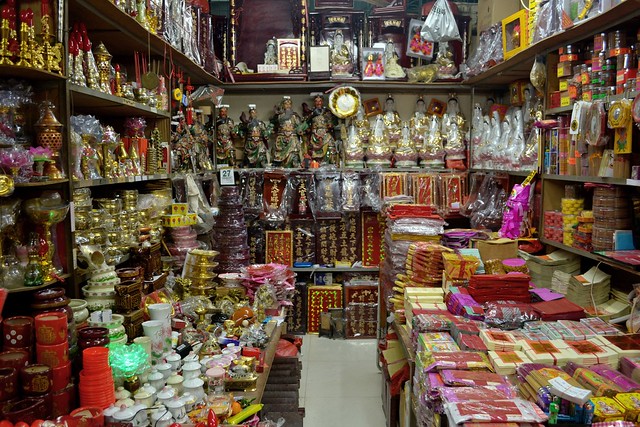
Photo Credit: cavinteo.blogspot.com.
Qingming Festival, or Tomb-sweeping day, is another prominent custom that involves the use of incense and burning of offerings. Chinese would visit columbaria and cemeteries to pay their respect to their ancestors, sweeping the graves clean and displaying and burning offerings to them. During this festival, Chinese would burn a large volume of joss papers, joss sticks, spirit-money and other paper-offerings, usually in the form of clothes, cars and other material objects, that the family wish to send over to the deceased in their afterlife.
However, outside of columbaria, some gravesites lack burners for families to use to burn their offerings, hence they would have to resort to burning offerings on the ground. In some areas in Singapore, there are gravesites located within remote forested areas, such as Coffee Hill, where the vegetation is thick, and the grave itself is covered with it, until the descendents had arrived to clean it annually. By burning the offerings on the ground, it pose as a fire hazard, given that if the family left before the fire had smothered out, there is a chance for it to spread, and burn down the surrounding forest area. This probability is increased with dry spells during those months (“Five times more fires during this year’s Qing Ming festival due to dry weather”, 2014).
 Image credit: Kevin Chan on Flickr
Image credit: Kevin Chan on Flickr
Furthermore, the paper and plastic packaging of joss papers, incense stick bundles and paper objects are sometimes left behind after the families are done paying respect to the grave, generating trash in the area. These leftover materials can also be fire hazards. For some Chinese communities, such as Hokkiens and Teochews, they would also place coloured papers on the grave to indicate that it has been visited. As most of these papers are not held down, they might end up being blown away by the wind into the surroundings, and may become accidental fire hazards as well.
Similarly, the Hungry Ghost Festival is a Buddhist and Taoist tradition that had found its way into Chinese culture. It is conducted during the seventh lunar month, with an emphasis on paying tributes to past ancestors and venerating the dead when they are released from the underworld. The Hungry Ghost Festival involve somewhat similar practices as the Qingming Festival, with the burning of incense, paper-based offerings, and provision of food offerings mainly on the 1st and 15th of the month in Singapore. It was found that during the Hungry Ghost Festival, there is an increase in contaminated rainwater due to an increase in toxic compounds, such as Aluminium, released when more joss papers, paper-based objects and incense are burnt (Khezri, Chan, Tiong & Webster, 2015). Furthermore, as previously mentioned, the burning also generated air pollutants that can pose a health and environmental risk. This pattern was also found for Qingming festival as well (Khezri et. al., 2014).
Funerals
 Image credit: David Boté Estrada on Flickr
Image credit: David Boté Estrada on Flickr
Chinese funeral rites share similarities with the above customs, in which large amount of joss papers and bulky paper offerings are burnt to send off the deceased into the afterlife. For some family, they might choose to burn very large offerings in the form of houses and cars, to ensure that the deceased’s needs in the afterlife is taken care of.